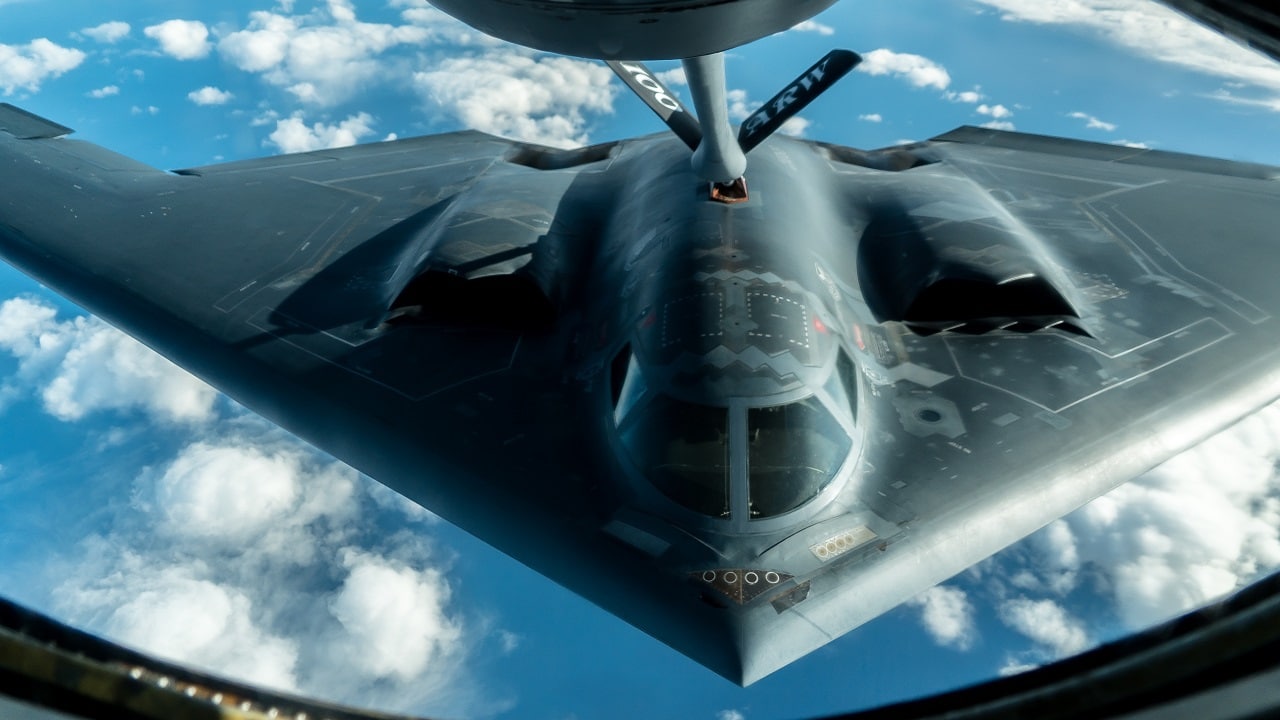Despite political polarization in Washington and across America, common ground still exists across political parties, and progress is possible on critical matters such as national security.
Global tensions are at an all-time high, and the unprovoked war in Ukraine is one glaring example. At a time when NATO and the European Union are reaffirming their commitment to peace, stability, and a strong defense, the U.S. Congress must put partisanship aside to recommit to a strong national and international defense. That means finding ways to keep America’s commitment to the NATO alliance strong and healthy.
Nuclear Deterrence Is as Crucial as Ever
With the rapid expansion of China’s nuclear arsenal, ongoing threats from Russia, North Korean missile launches, and elevated concerns about Iran’s nuclear program, the NATO alliance is just as important now as it was during the Cold War. Not since that conflict has the threat of nuclear attack so disrupted global security and stability.
As former members of the Armed Services Committee in the U.S. House of Representatives, one of whom was president of the NATO Parliamentary Assembly, we believe that efforts to strengthen the Transatlantic alliance must include an emphasis on the critical role of nuclear deterrence. While it has been at the core of NATO’s collective defense for more than 70 years, there are some who think nuclear deterrence is not relevant in the modern era. This sentiment couldn’t be further from the truth, and we have been glad to see world leaders agree on the importance of deterrence. Without it, the world would be a much more dangerous place.
Credible deterrence was first defined and approved by NATO in December 1949 and relied on nuclear weapons “to coordinate, in time of peace, our military and economic strength with a view to creating a powerful deterrent to any nation or group of nations threatening the peace, independence and stability of the North Atlantic family of nations.” In short, this deterrence policy underpins peace and global stability, deters aggression, and reassures our allies.
Gen. Anthony Cotton, commander of USSTRATCOM, agrees that deterrence is a fundamental mission in today’s threat context. He argues that “the nuclear deterrent is foundational to deterring strategic attack and the use of nuclear weapons against the U.S. and our Allies and partners.”
Like any team, the NATO alliance is more than the sum of its parts. Its strength comes from working together toward common goals, with each member nation of the team playing to their particular strengths and abilities. A big part of that for the United States means maintaining a modern, credible and mission-ready nuclear capability. Our allies rely on the deterrence our nuclear weapons systems provide against threats.
Time to Modernize Our Nuclear Arsenal
But our capabilities have to match the threat. Former USSTRATCOM Commander Adm. Charles Richard said it best: “As our adversaries continue to advance, the continued modernization of our nuclear triad, [nuclear command, control and communications] and weapons complex is critical to ensuring we remain capable to deter our adversaries and defend the homeland, and our allies for the years and decades to come.”
Our nuclear weapons are reaching the end of their lifespans. Fortunately, U.S. President Joe Biden’s recently-released Nuclear Posture Review signals full support for nuclear modernization programs such as the Sentinel intercontinental ballistic missile system, the B-21 Raider, and the Columbia-class submarine, that are currently underway.
These new systems also enjoy bipartisan support from Congress and are necessary to ensure a strong defense posture and deter adversaries. Any questions that remain about the critical need for a modern and effective nuclear triad should be considered resolved given the age of our current systems, the rapid nuclear modernization and expansion of potential adversaries, and the clear signals from America’s closest allies of the importance of continuing to build and maintain strong deterrence capabilities.
Through modernizing our nuclear capabilities to meet these rising threats, we are demonstrating a true commitment to our NATO allies. NATO benefits from widespread and broad bipartisan support from lawmakers and American citizens alike. Now more than ever in these turbulent times, we must reinforce our support for this alliance and the key protections that it offers.
Author Expertise and Experience
Former U.S. Reps. John Tanner and Baron Hill were members of the Blue Dog Coalition during their tenures in Congress. Tanner represented Tennessee’s 8th Congressional District from 1989 to 2011. In addition to being a founding member of the Blue Dog Coalition, he served as the Democrats’ chief deputy whip in the 109th, 110th and 111th Congresses, and served on the House Ways and Means, Armed Services, Foreign Affairs, and Science committees. Additionally, Tanner served as President of the NATO Parliamentary Assembly. Hill represented Indiana’s 9th Congressional District from 1999 to 2005 and again from 2007 to 2011. He served on the Armed Services, Energy and Commerce, Science, and Joint Economic committees. He also was a member of the Bipartisan Congressional Delegation to NATO Parliamentary Assembly Meetings.

